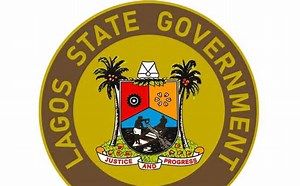
Lagos to Host Major Tourism Exhibition with Over 15,000 Stakeholders Expected
The city of Lagos is preparing to play host to one of the biggest tourism exhibitions in West Africa, an event projected to attract more than 15,000 stakeholders from across Nigeria and beyond.
Scheduled to take place from December 11 to 13, 2025, the gathering, known as the Migbaci Expo, is themed “Imperative of Tourism to National Development.” It is expected to serve as a unifying platform where investors, cultural ambassadors, government officials, and international delegates will converge to shape a new narrative for Nigeria’s tourism sector.
The exhibition has been designed to reposition Lagos, and indeed Nigeria, as a central hub for tourism and cultural exchange on the continent. Organizers note that the scale of participation—spanning hoteliers, travel agencies, airlines, tour operators, artisans, cultural groups, and policymakers—underscores the growing recognition of tourism as an economic driver that goes far beyond leisure.
With an anticipated turnout of 15,000 exhibitors, the event is not only about showcasing destinations but also about unlocking fresh investment opportunities across hospitality, transport, culture, and entertainment.
Tourism in Nigeria has often been underutilized compared to its potential, despite the country’s diverse landscapes, rich heritage, and vibrant creative industries. Lagos, known as the commercial capital and the heartbeat of entertainment in Africa, has long been seen as a gateway into the possibilities that tourism can offer.
The Expo is therefore being heralded as more than just a cultural showcase; it is a chance to chart a practical roadmap for a sector that can generate jobs, boost foreign exchange earnings, and diversify the economy away from over-reliance on oil revenues.
The timing of the Migbaci Expo is also strategic, coming at a period when governments across Africa are rethinking economic recovery models after years of global disruptions. Nigeria, with its large youth population and burgeoning creative economy, has been positioning tourism as one of its pillars of sustainable growth.
By attracting thousands of exhibitors and international partners, the Lagos exhibition could mark a turning point in building lasting partnerships that place Nigeria firmly on the global tourism map.
Beyond the business opportunities, cultural identity and heritage will be at the center of the exhibition. From music and dance to indigenous crafts and gastronomy, the event will showcase the richness of Nigeria’s cultural tapestry to an international audience.
Organizers believe this will not only enhance pride in local traditions but also create avenues for cultural diplomacy and soft power.
In an era when nations compete for global visibility, cultural assets are increasingly recognized as vital tools for strengthening national identity and attracting visitors.
Stakeholders in the tourism value chain are already expressing optimism about the ripple effects of such a large-scale gathering.
Local entrepreneurs see it as a chance to present homegrown innovations, while international investors are looking at potential partnerships with Nigerian firms.
Government representatives, on their part, have hinted that the exhibition could spark policy discussions aimed at removing bottlenecks that have hindered tourism growth in the past, such as inadequate infrastructure, inconsistent regulations, and limited investment incentives.
The Lagos State Government has also thrown its weight behind the initiative, noting that the Expo aligns with its broader vision of transforming Lagos into a 21st-century mega city.
With its blend of coastal beauty, cultural dynamism, and modern facilities, Lagos is positioning itself as both a business destination and a leisure hub.
The upcoming exhibition will provide the perfect stage to consolidate this image and extend Lagos’ influence across Africa and the world.
As December approaches, excitement is building not only among industry insiders but also among communities that stand to benefit from the influx of visitors and the economic activities the Expo will generate.
Hotels, restaurants, transportation services, and small-scale businesses in Lagos are preparing to tap into the opportunities that come with hosting such a significant event.
The exhibition promises to be a melting pot of ideas, cultures, and collaborations, bringing together a diverse mix of voices under one roof to discuss how tourism can become a cornerstone of national development.
With over 15,000 stakeholders expected, the Migbaci Expo is poised to make history as one of the largest gatherings of its kind in Nigeria.
More than an exhibition, it will be a call to action, urging both public and private players to embrace tourism not merely as an afterthought but as a critical engine of growth.
For Lagos and for Nigeria, it represents an important step in reclaiming a place on the global tourism stage and redefining the future of an industry with limitless potential.

